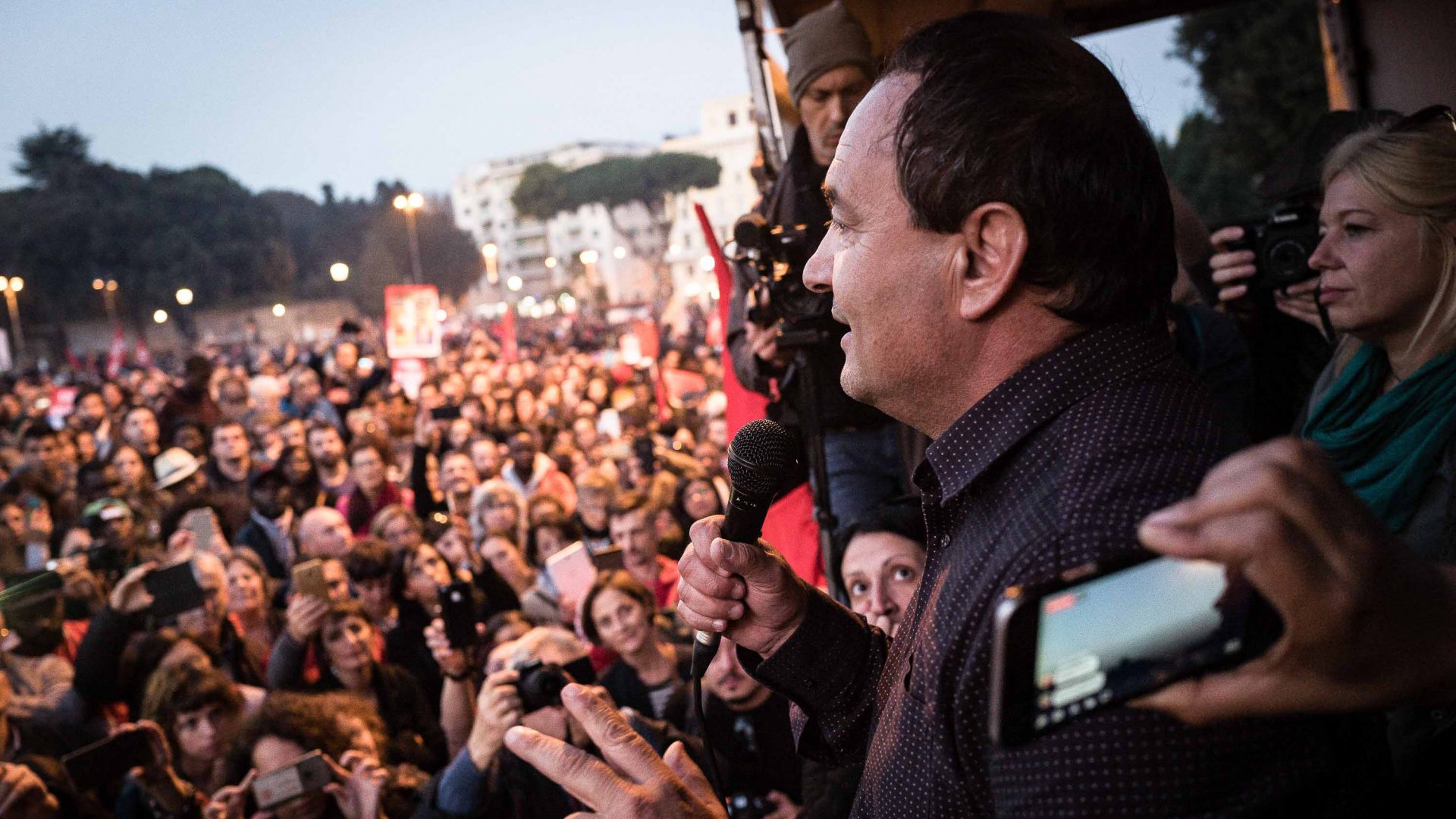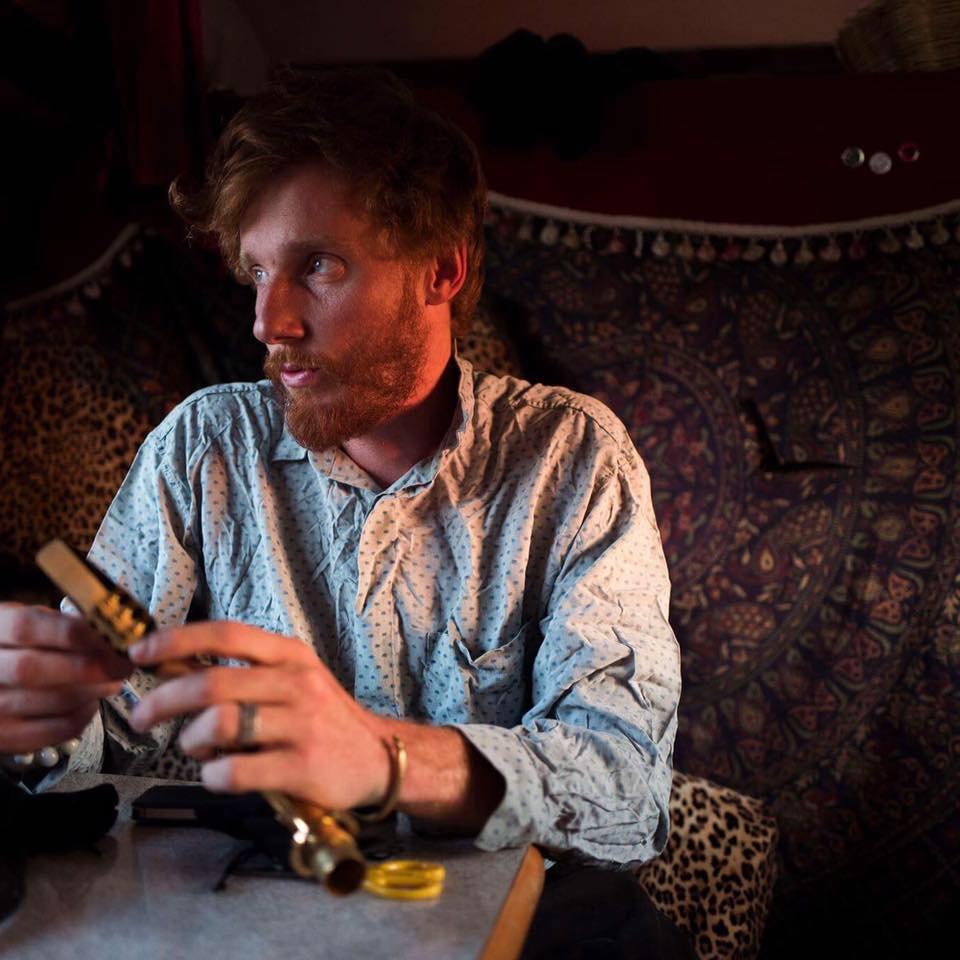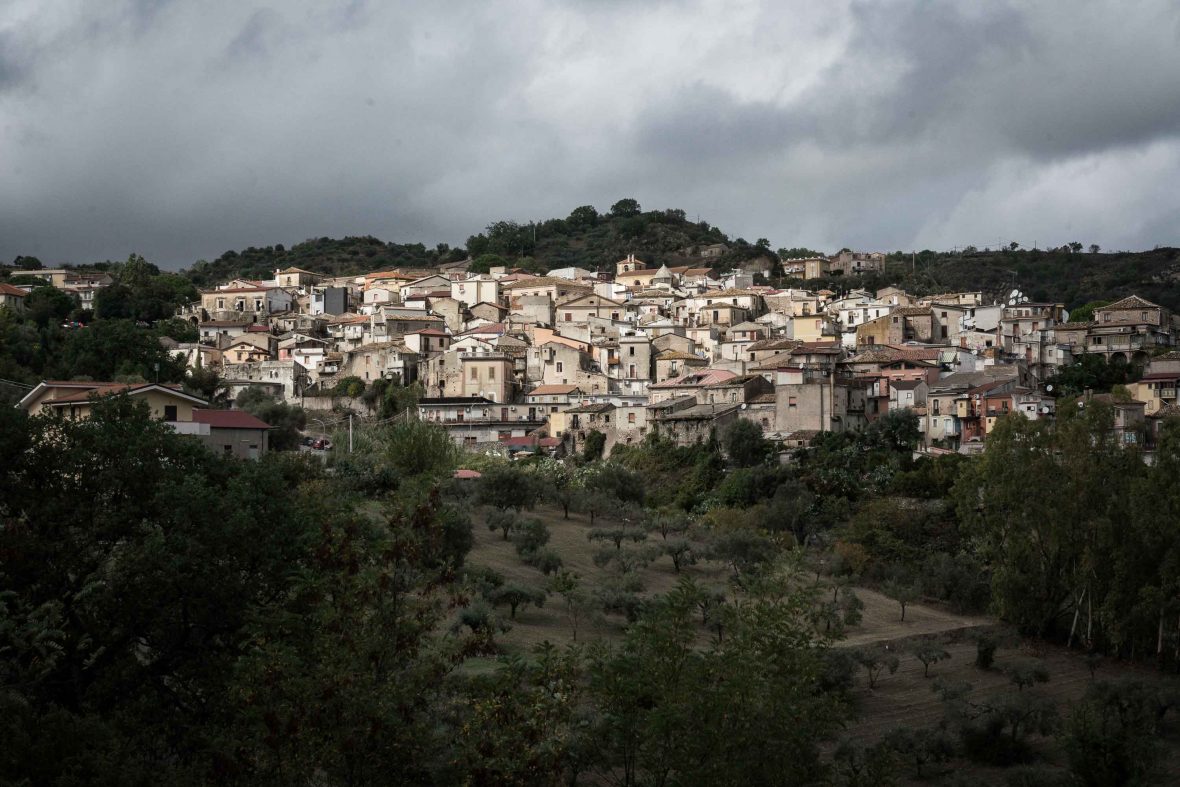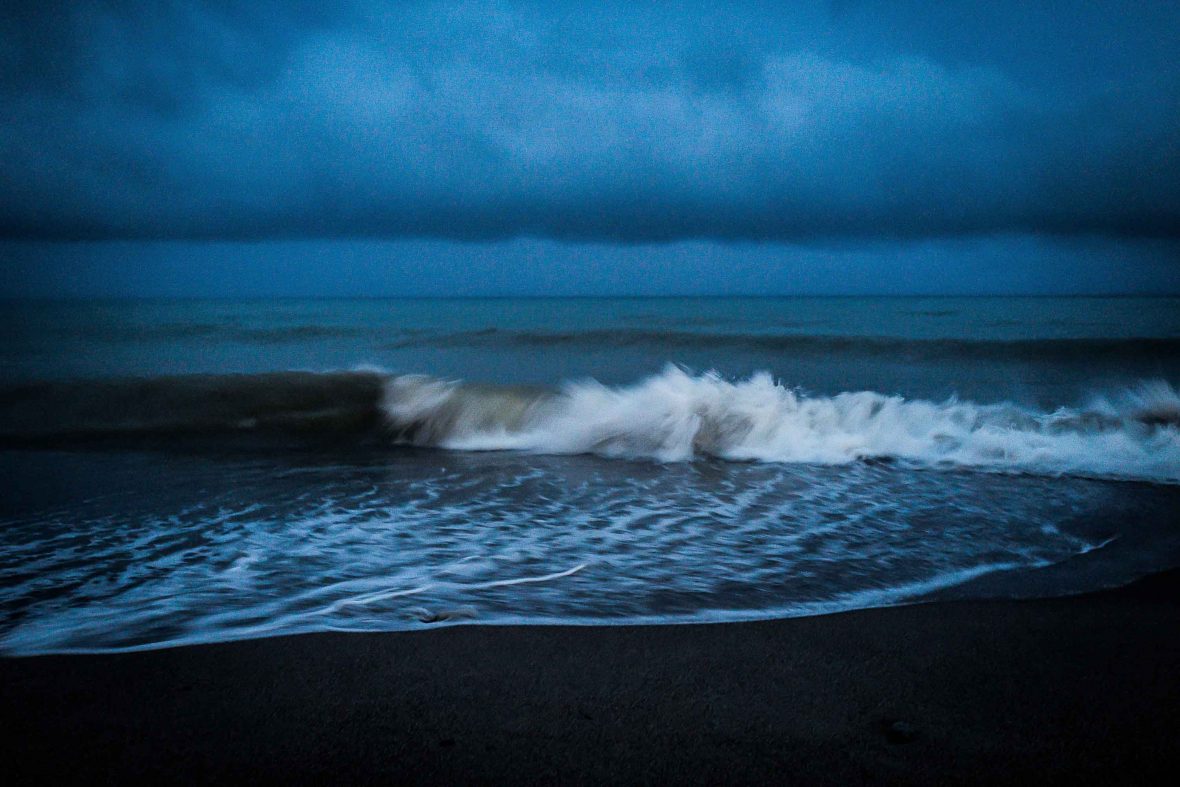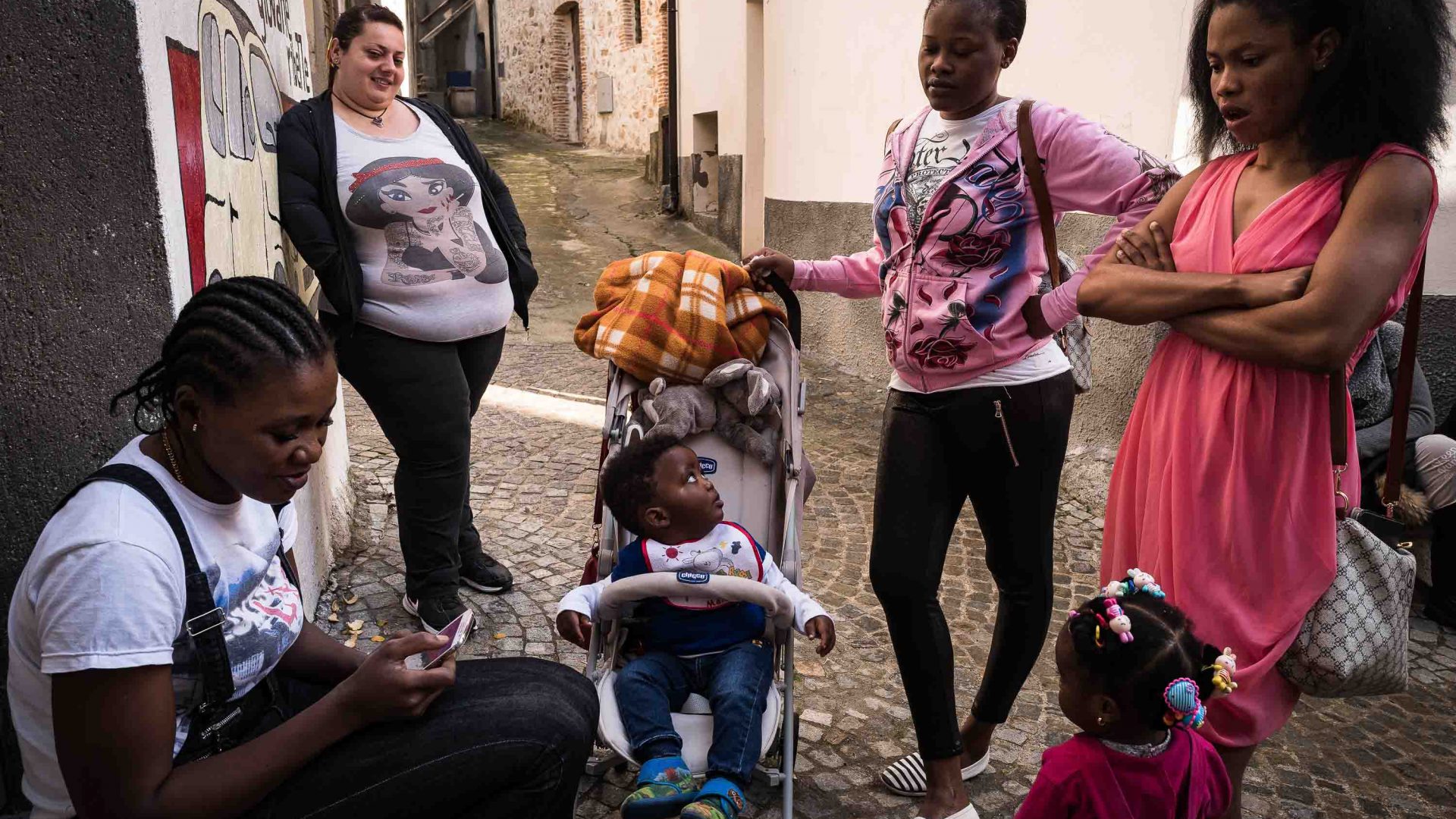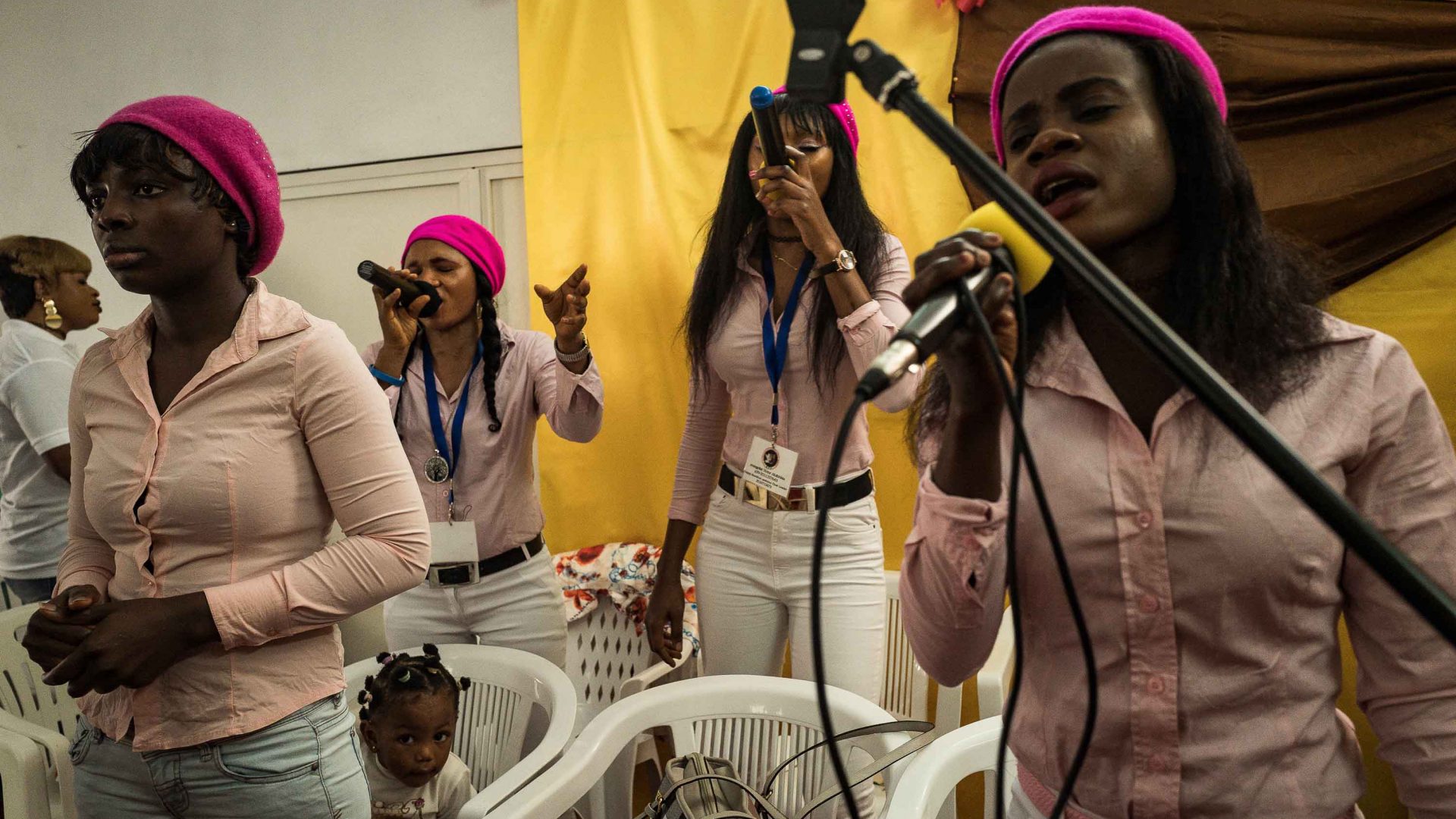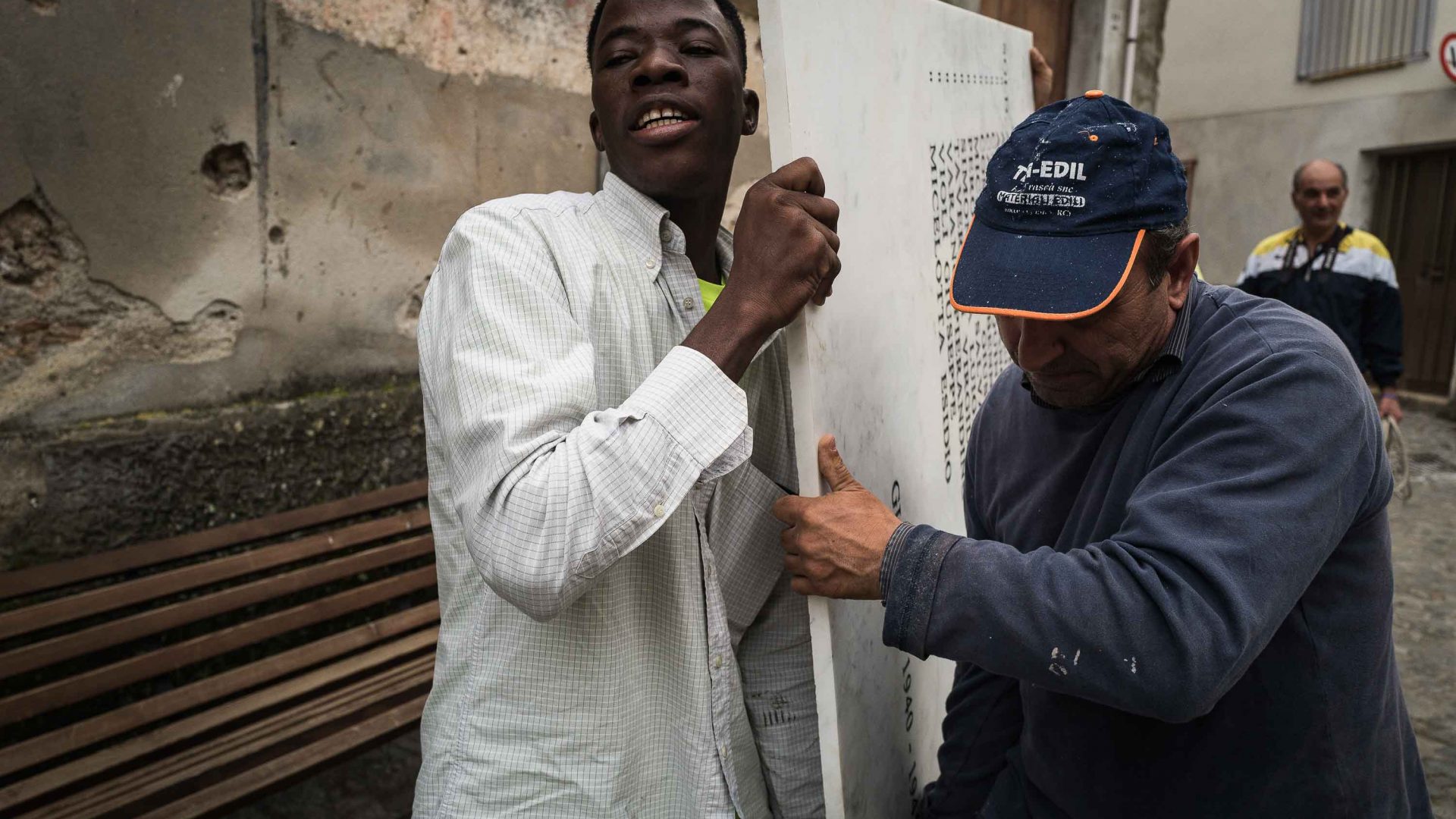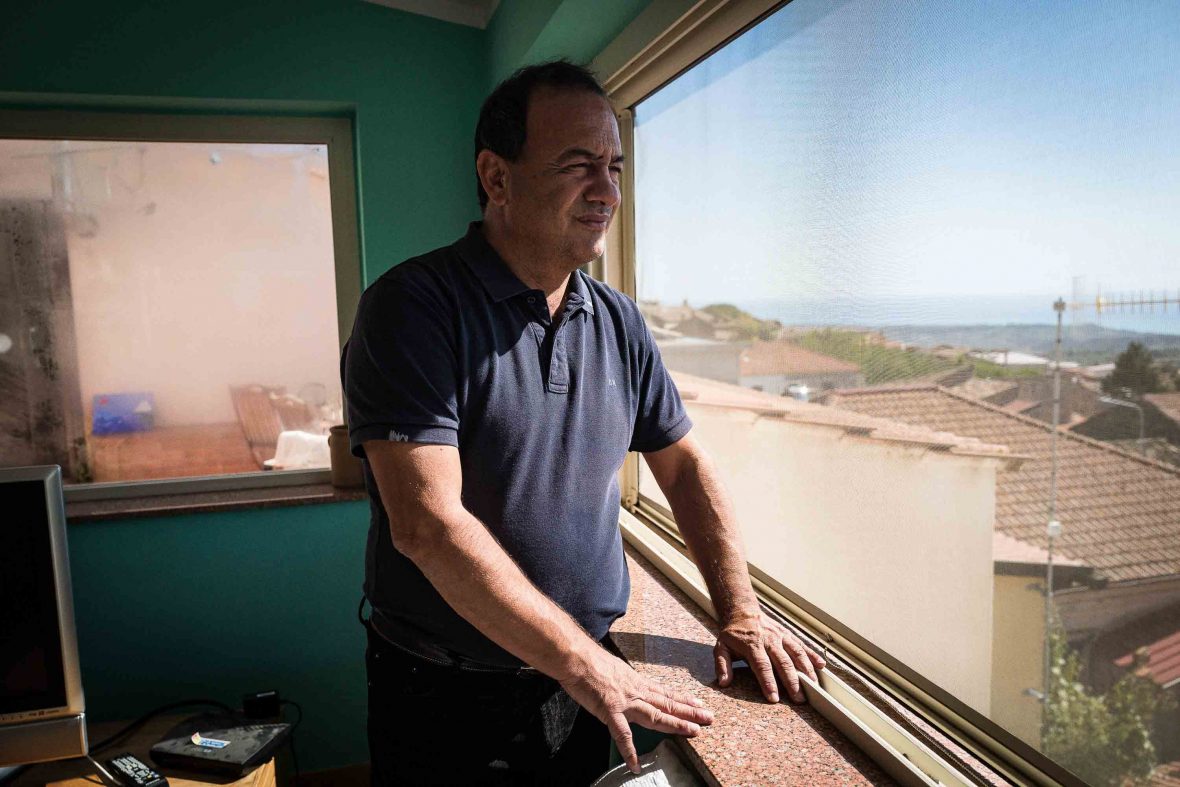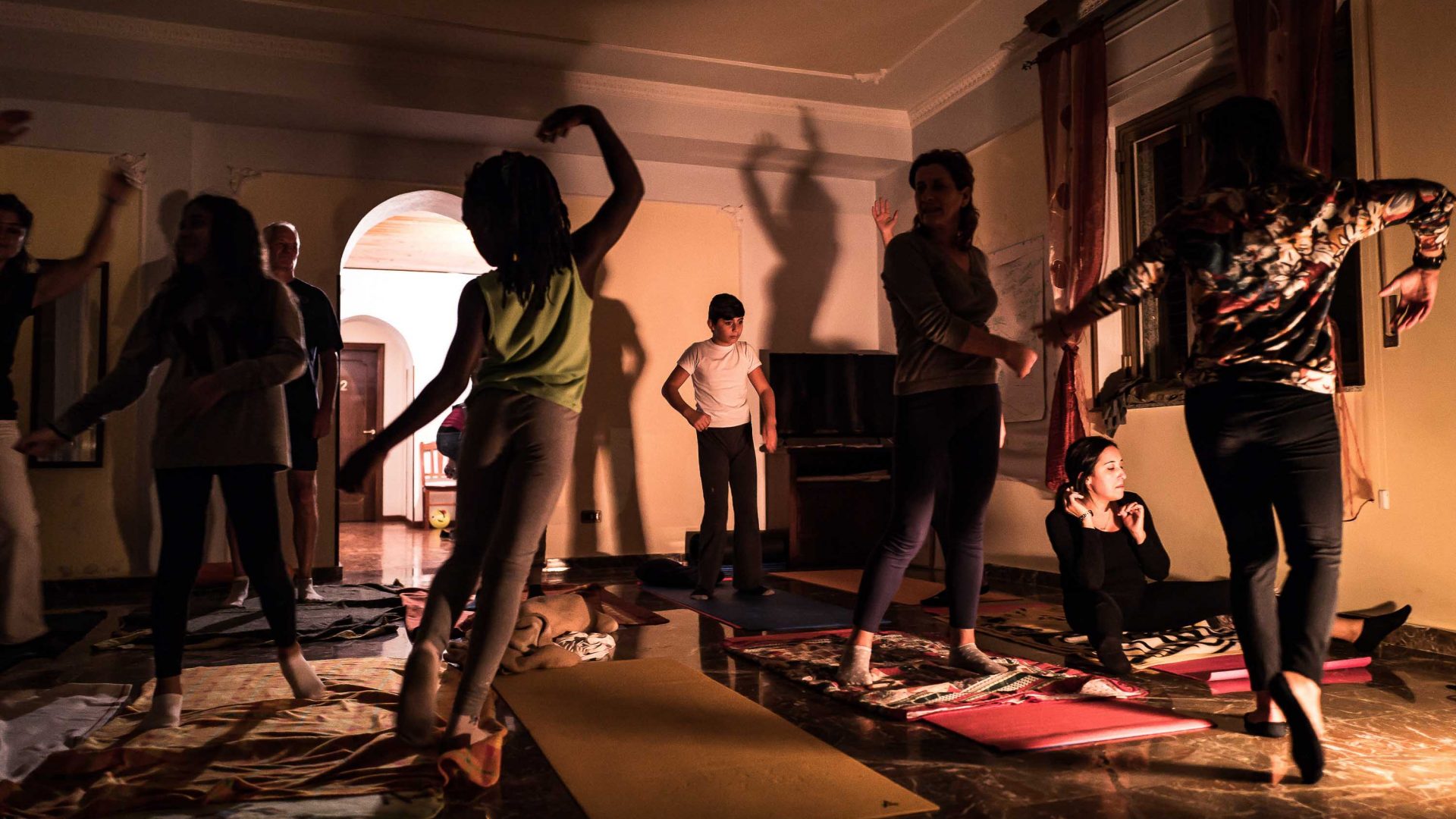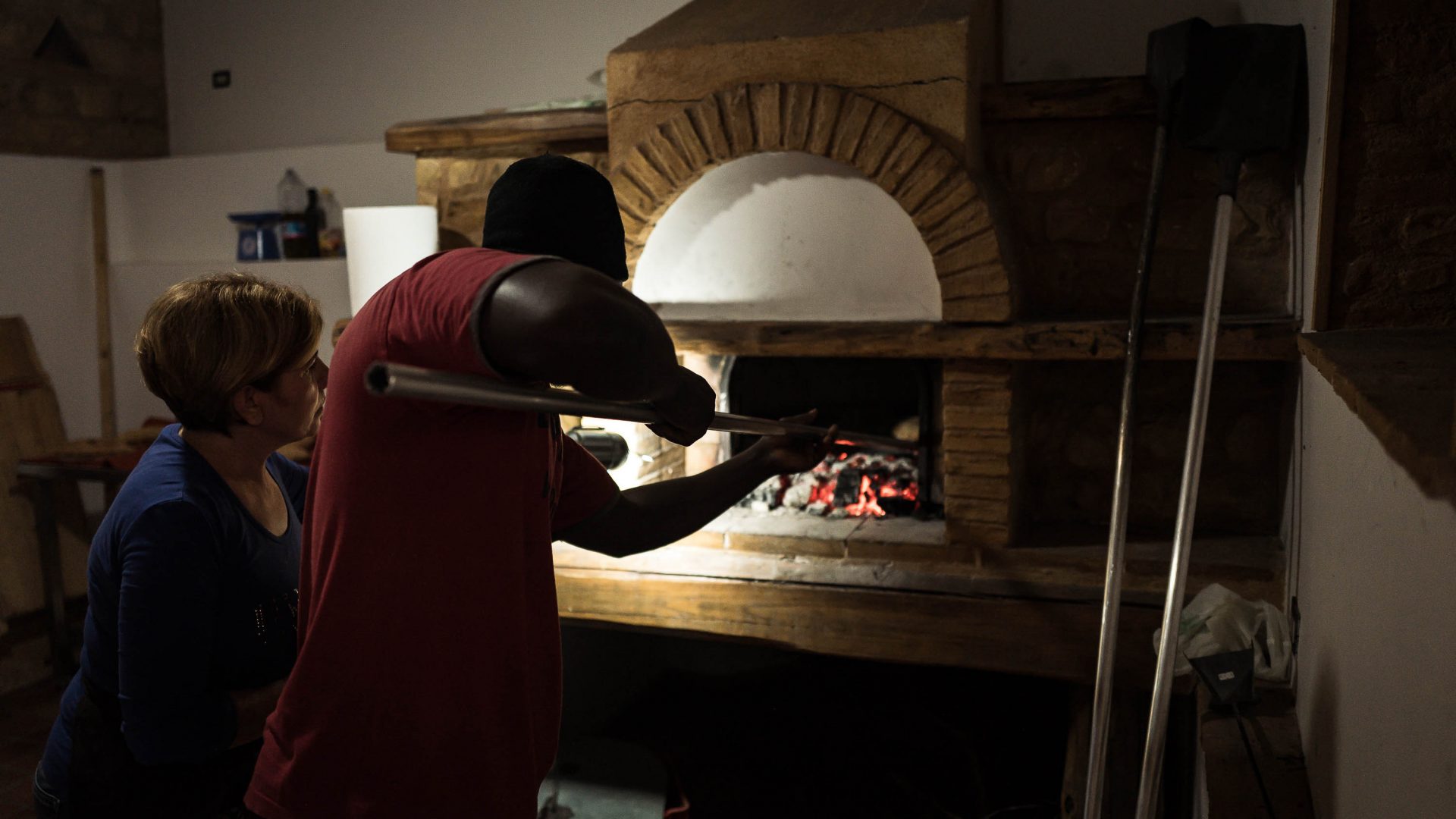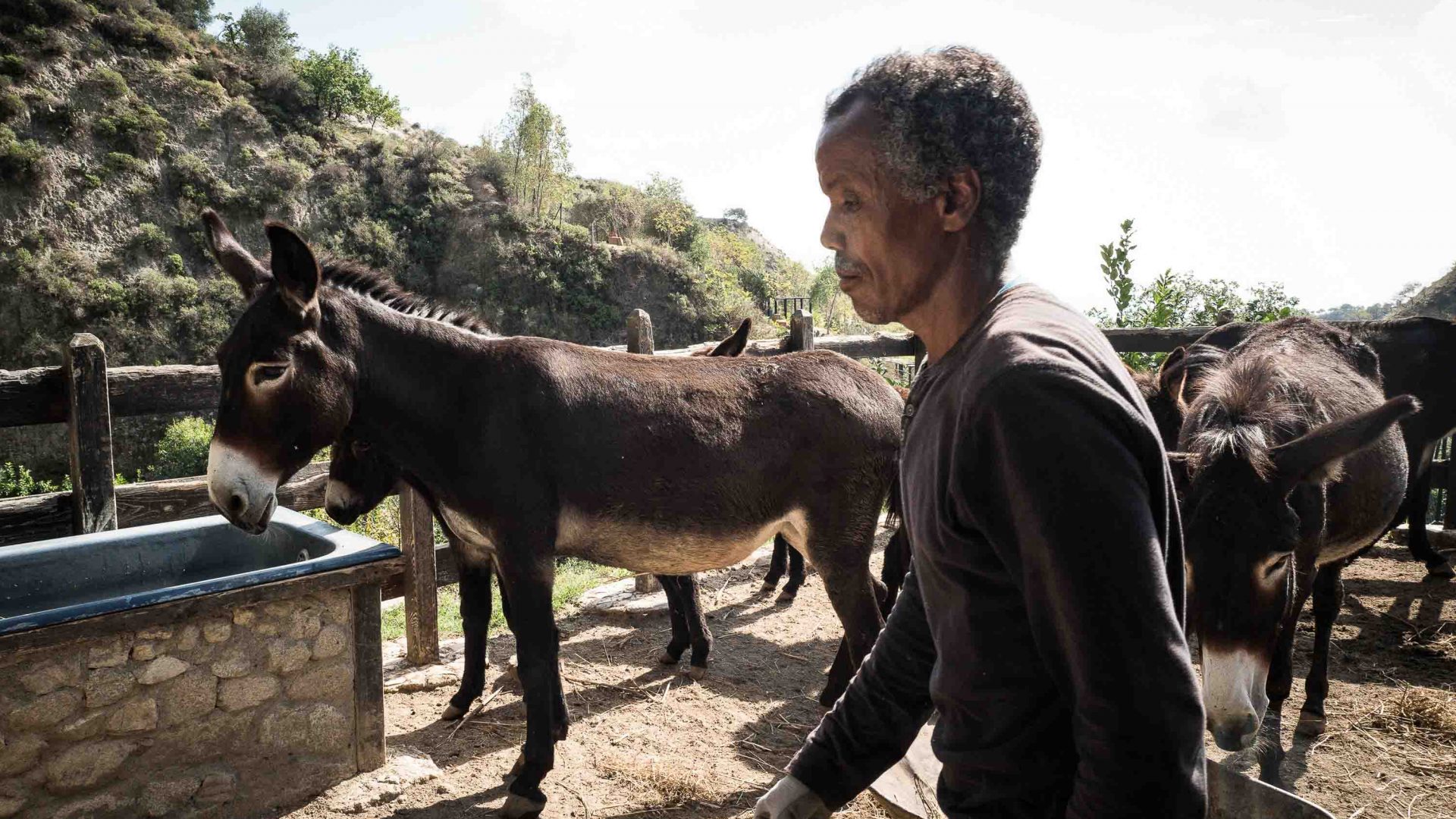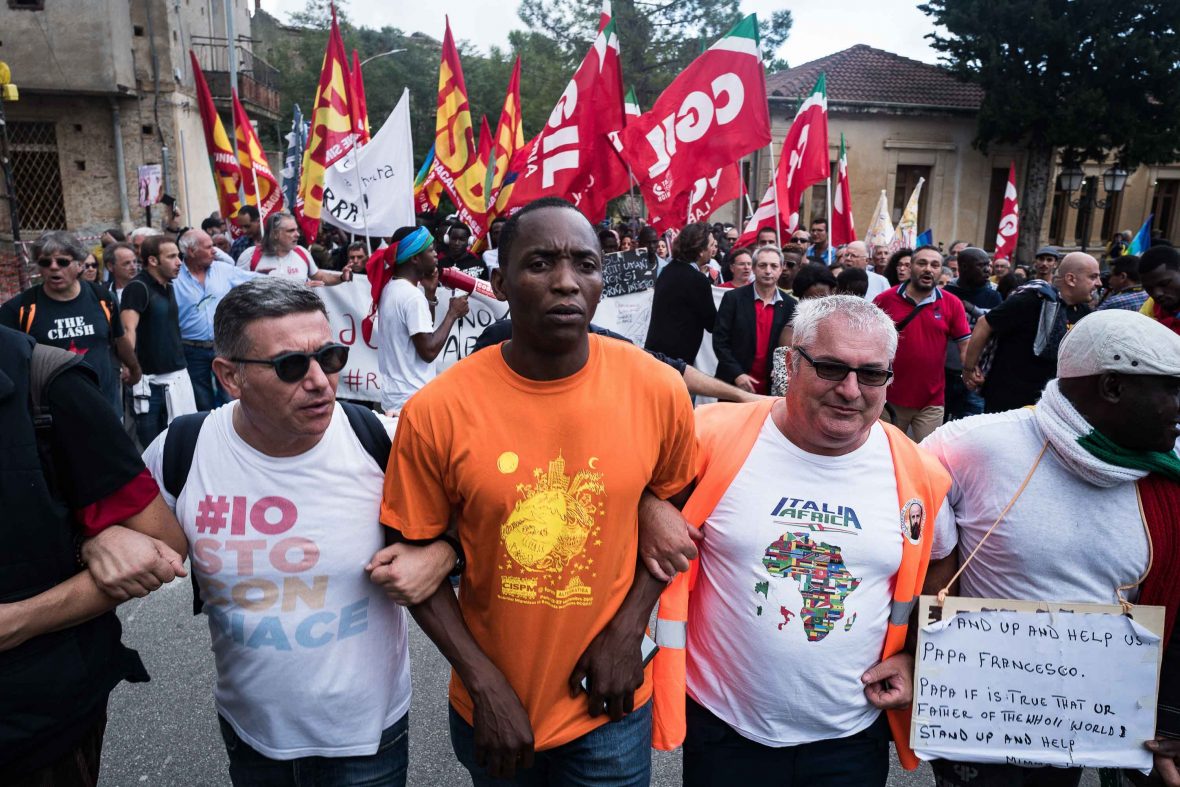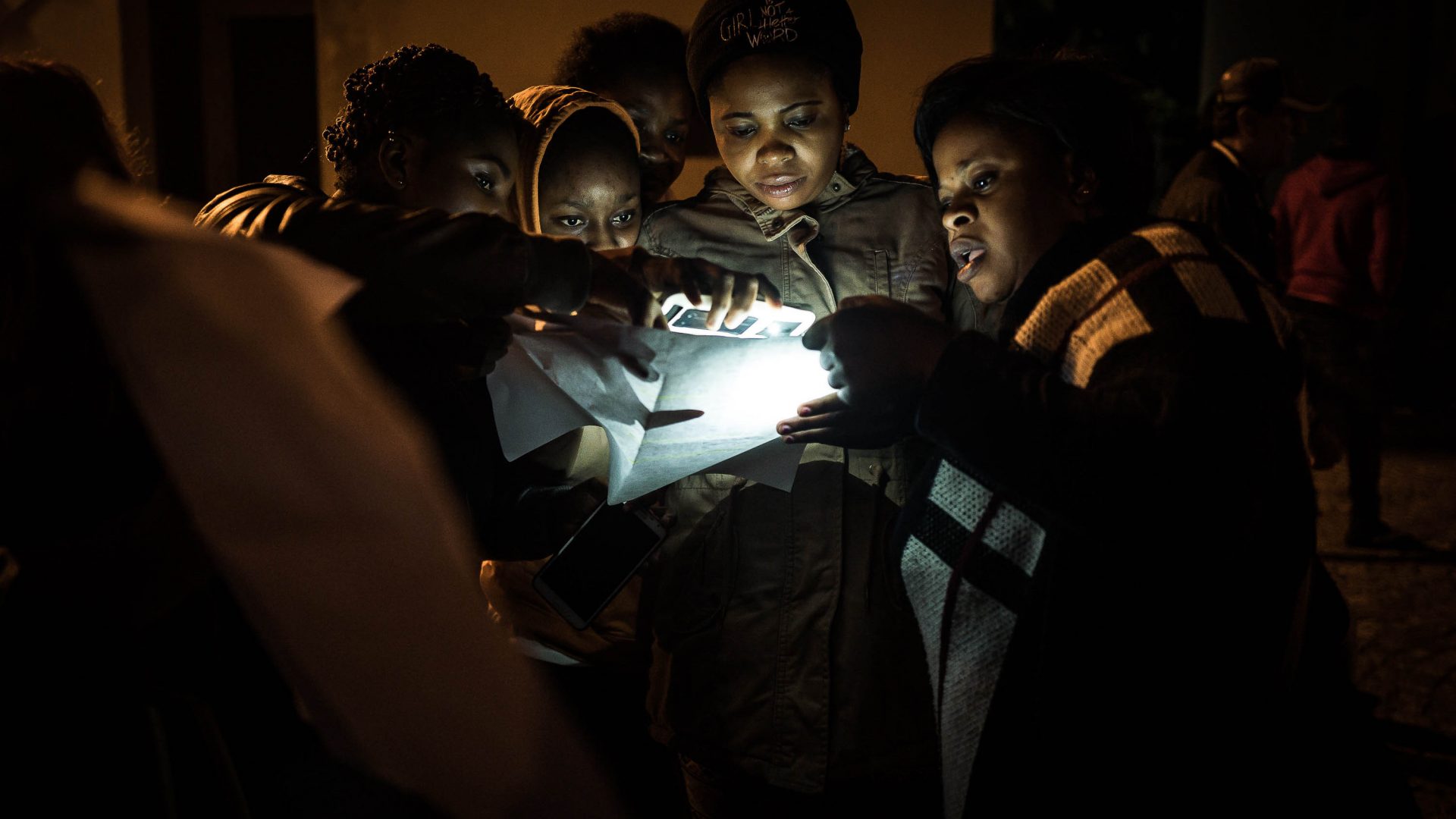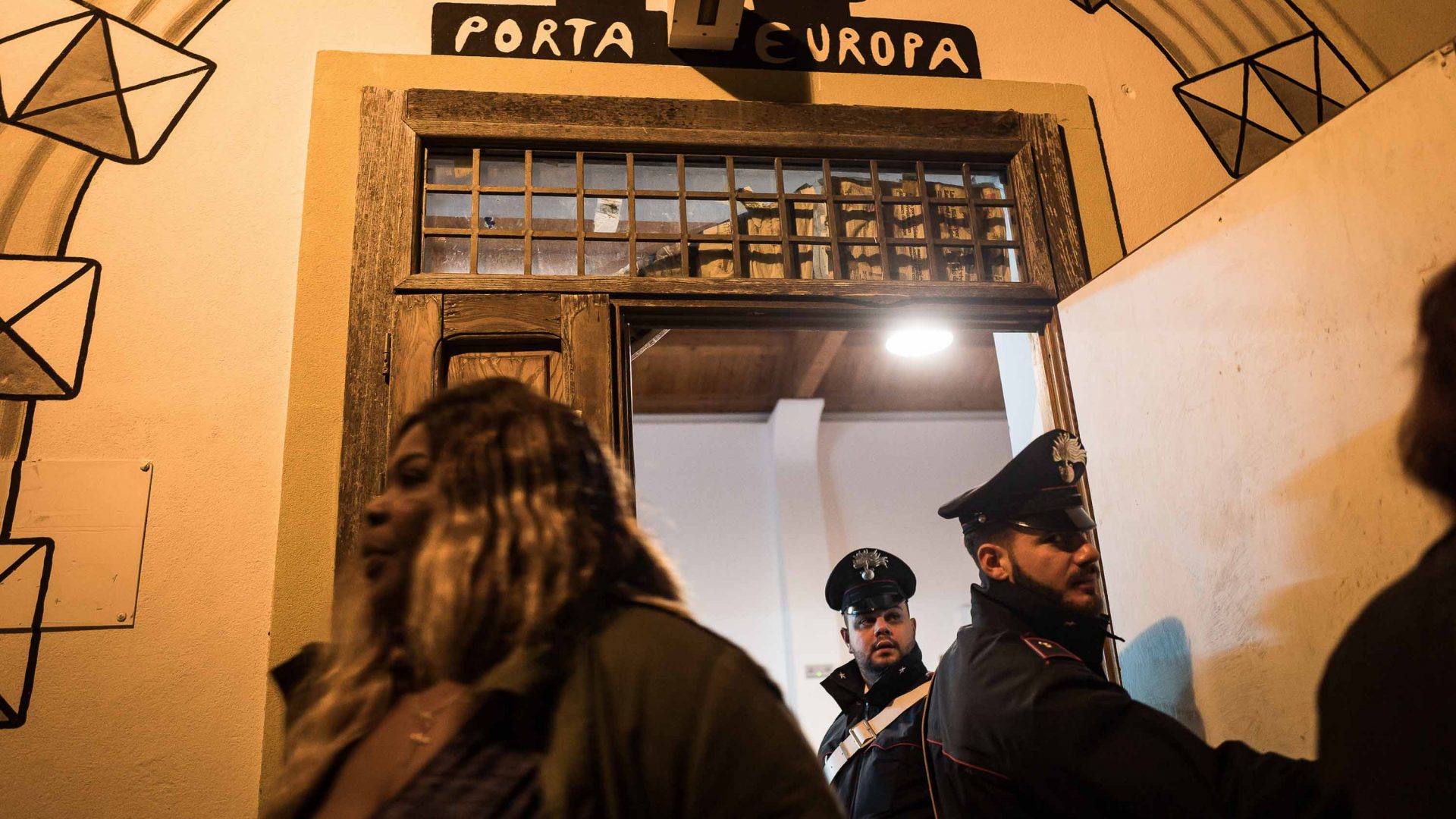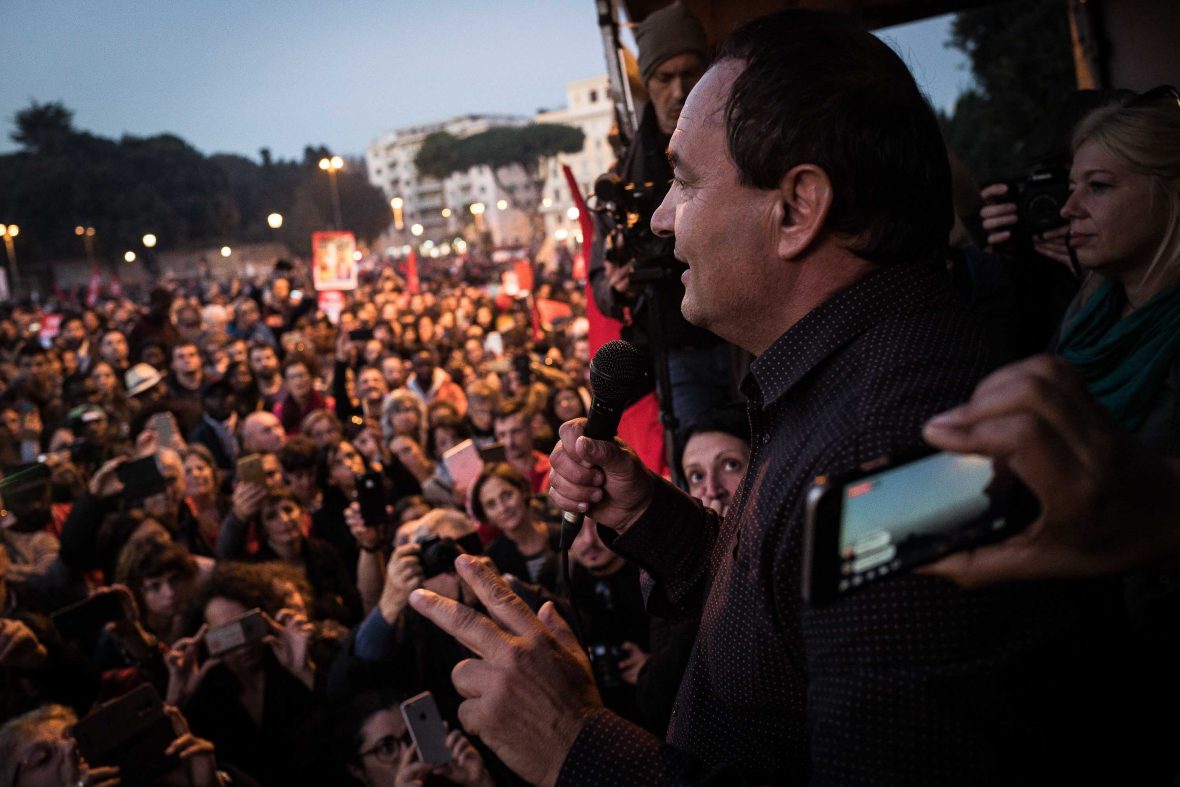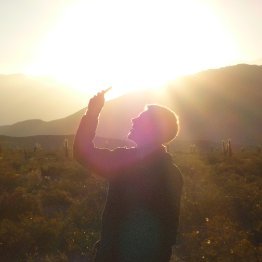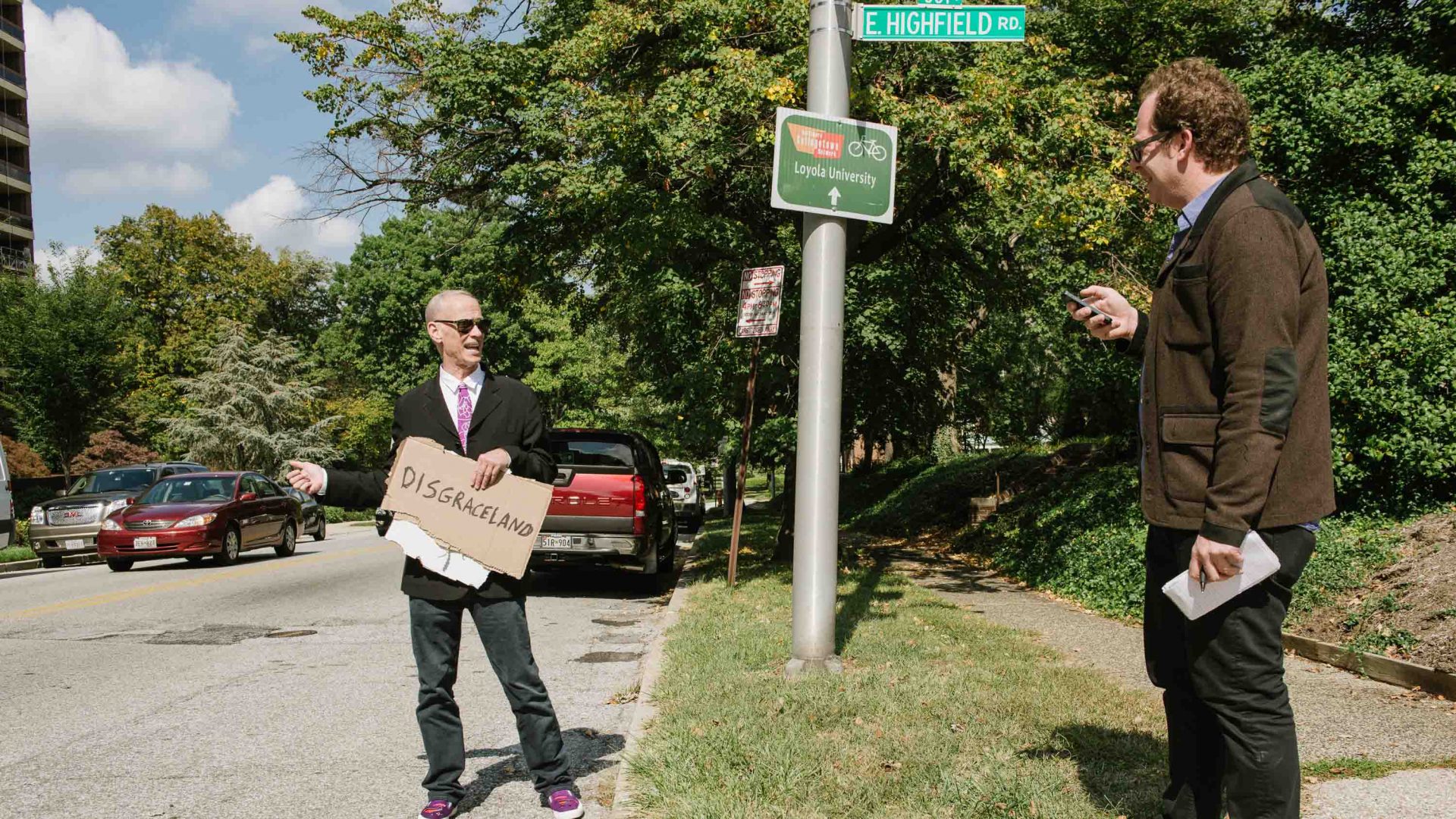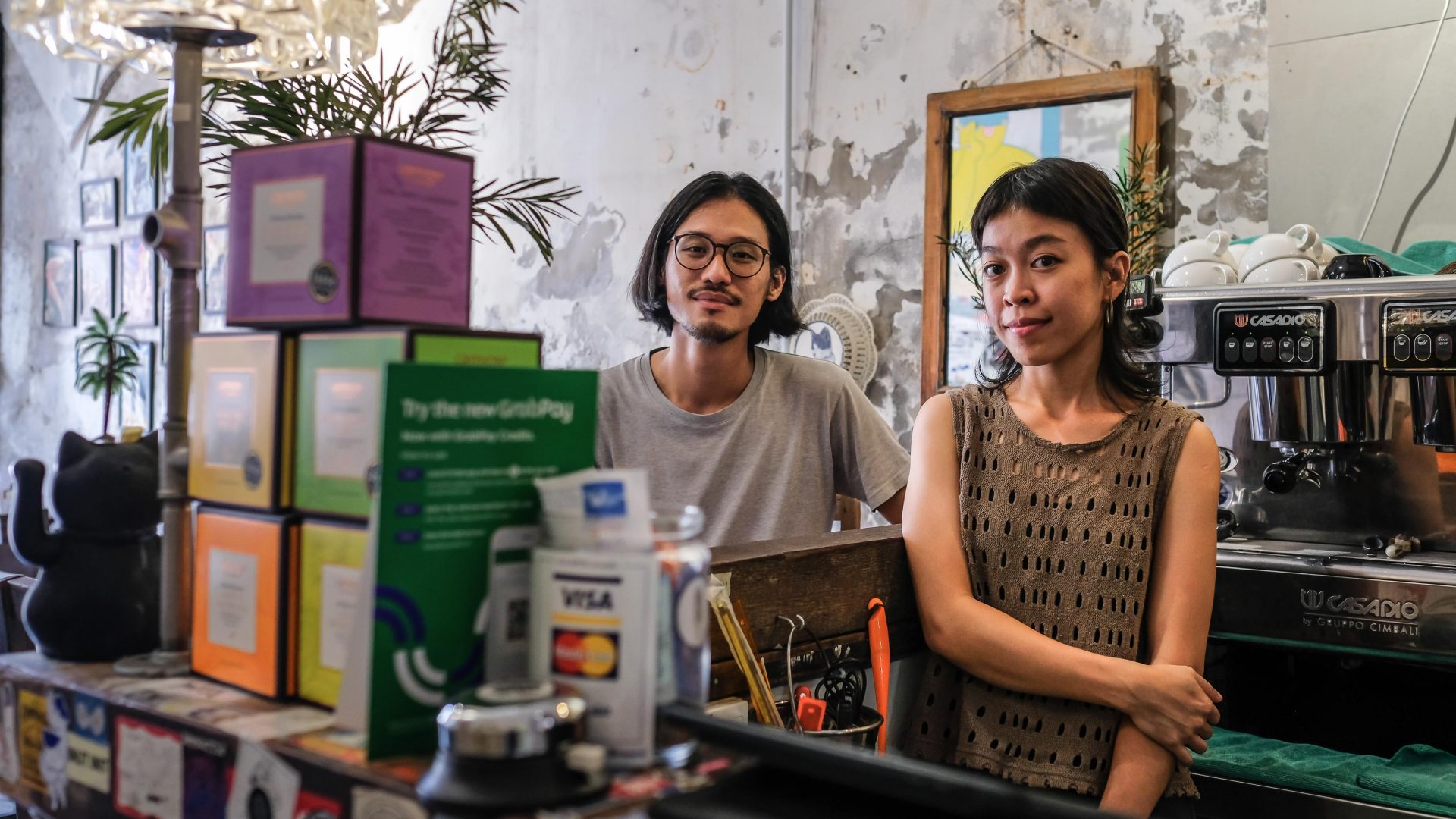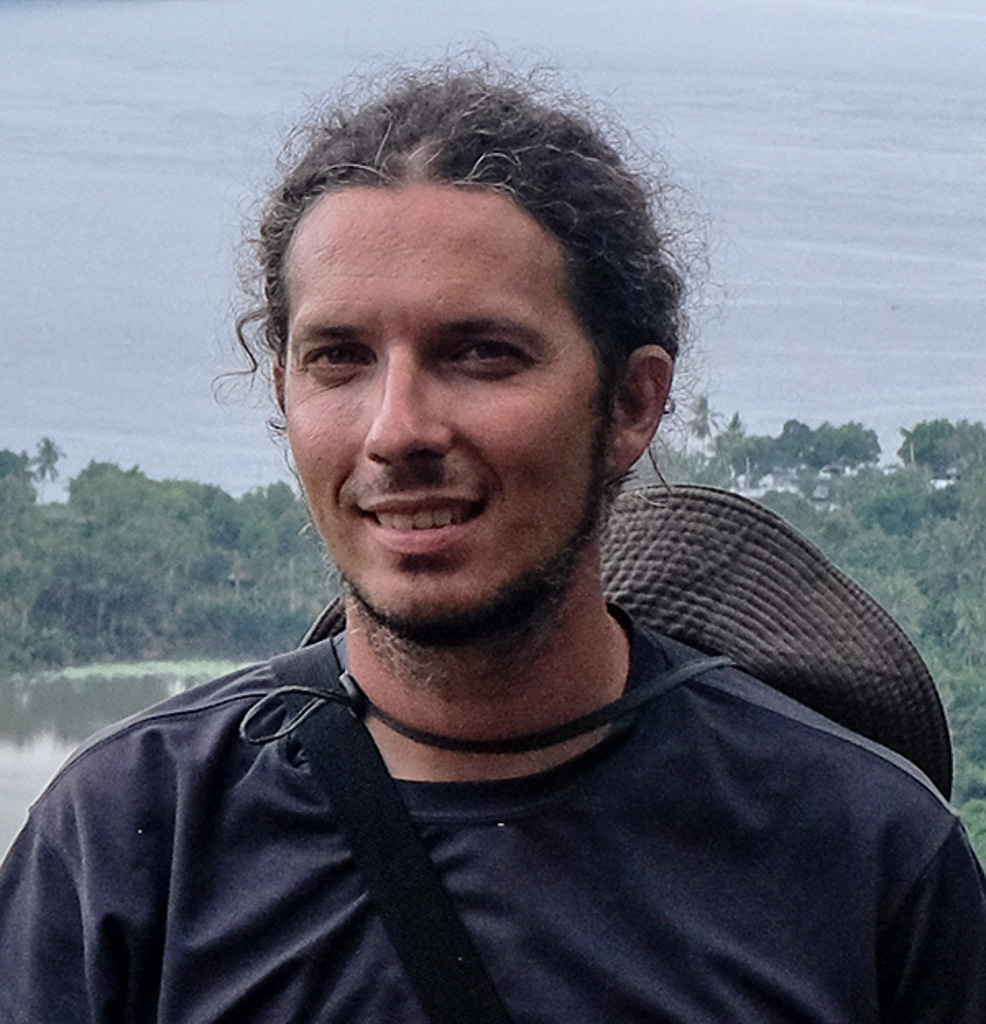Editor’s note: This article was published before the coronavirus pandemic, and may not reflect the current situation on the ground.
In Italy’s Calabria region, Nicola Zolin charts the rise and fall of a depopulated town, and the mayor who welcomed refugees with open arms and built a special kind of utopia in the process.
It’s as if time has stopped. It’s August 2015 and, on this sunny summer’s day, I’m driving through the southern Italian region of Calabria, all the way down to the tip. Marvellous—yet mistreated—beaches reveal themselves at every turn. But I’m not here to see them.
I eventually reach Riace, a medieval village on a hilltop overlooking the Ionian coast. I’m hungry after my long journey and in search of a good meal. There’s one tiny bar, but it’s about to close. My brief conversation with the Croatian owner grabs the attention of a woman upstairs, who offers to cook me a plate of pasta with tomato soup. I gladly accept.
Over lunch, we
talk. Although originally from Riace, Teresa—the woman upstairs—was now living
in Rome. She moved there because she thought her children would enjoy a better
education and more opportunities, but visits Riace every summer to see family
and friends.
Teresa explains that an old world of traditions and professions had been lost in Riace, and that for a long time, there was nothing left to replace it. In just a few decades, the population of the town dropped from 2,500 to around 600, and most of its young people migrated away, lured by the same things—jobs, education, money, opportunity. The town’s most happening spot during that time became the post office, on pension day.
RELATED: Tracing Greece’s youth ‘hippie trail’
Riace fell into such a deep sleep that even the sub-aquatic 1972 discovery of two ancient Greek statues, ‘The Bronzes of Riace’ couldn’t wake it. The perfectly-preserved statues—billed as one of Italy’s most important archaeological discoveries of the last 100 years—were whisked off to Reggio Calabria while Riace barely batted an eyelid. The town was cold to the touch.
“You’re a journalist, aren’t you?” Teresa asks me while pouring me a coffee. I smile. I wonder how many of us she’s seen in these last few years. Quite a few, I suspect. Because some 26 years after the statues were discovered, on the same shoreline, something equally unexpected happened: A boat of exhausted human beings bound for Greece floated into Riace marina. There were 218 of them.
“When I saw these mountains, I thought of Kurdistan, my home,” says a man named Bahram a few hours later, taking a drag on his cigarette as he peers at me through his sunglasses. “The colors, the shapes, they were familiar.”
Bahram was in that boat in 1998, and is known as the oldest ‘foreign citizen’ of Riace. “I wanted to work,” he says as we walk around the small alleys of the old town, past African children playing, murals and street poetry, and old people sitting, smoking and talking—waiting for the second bar to open. “I’ve been everything here. A carpenter, bricklayer, blacksmith, a driver … I can’t complain.”
On the road leading to the office of ‘Città Futura’ the cooperative for the reception of refugees, we run into Lucano, who’s now Riace’s mayor. ‘Mimmo’, as everyone calls him in Riace, had been a long-time activist before his switch to politics, and the ‘refugees welcome’ project, as it’s become known, was his brainchild.
In a time where politicians around the world often use migrants as a distraction from other issues, Lucano created la città dell’accoglienza, or ‘the welcoming city’. “We dreamed of a town where people could live according to local traditions, free from the inhuman rules of capitalism and consumerism,” says Lucano. “A culture of hospitality that can always welcome any foreigner. Only 20 years ago, there was nothing of all this. The village was dying. Look how lively it is now!”
The experiment in Riace inspired a new approach towards migration across Italy, based on the inclusion of refugees and asylum seekers in small communities, with services such as language lessons, cooperative workshops, professional training and legal support all provided. The refugees were seen as a resource—not a problem that needed to be fixed. Though it was technically operating outside of the law, Riace was hailed around the world as a model of integration, and came to be seen as a political laboratory for many other struggling and depopulated towns around the country.
At its peak, some 800 migrants, refugees and asylum seekers from 20 countries populated Riace. Buildings and previously abandoned houses were transformed into businesses selling handicrafts, chocolate and all manner of goods from around the world. Locals taught the newcomers age-old traditions, and Riace’s old establishments began reopening.
RELATED: On the road with Iran’s hitchhiking youth
But without funds, the local cooperatives, used to support the refugees, quickly accumulated debt. Some months later, the machine stopped functioning entirely. Most of the workshops were closed, local people lost their jobs, and a wave of discontent washed over the previously thriving town.
Two years later, on October 2nd 2018, Domenico Lucano was placed under house arrest, accused of deeds that amounted to “favoring illegal immigration”, which included approving an illegitimate wedding between a local and an asylum seeker. Riace awoke in a state of shock. At his tribunal, Lucano declared he was “guilty of humanity.”
I returned to Riace on October 6th and joined a demonstration of over 6,000 people who gathered to show their support to the now-suspended mayor.
The morning after the demonstration, Riace is empty and depressed. I visit Lucano’s house and ring the doorbell. “How can I accept laws that dehumanize people?” he tells me. “They want to destroy us. We must reflect on the system that we are living in, and how human values are being lost in this consumerist and capitalist society.”
“Free Mimmo!” someone shouts from downstairs.
The mayor closes his eyes and grimaces, as if his heart just broke in his chest.
“That’s Aiva,” he whispers, recognizing the voice. “I invited him to live with us. And now … what is he going to do?”
